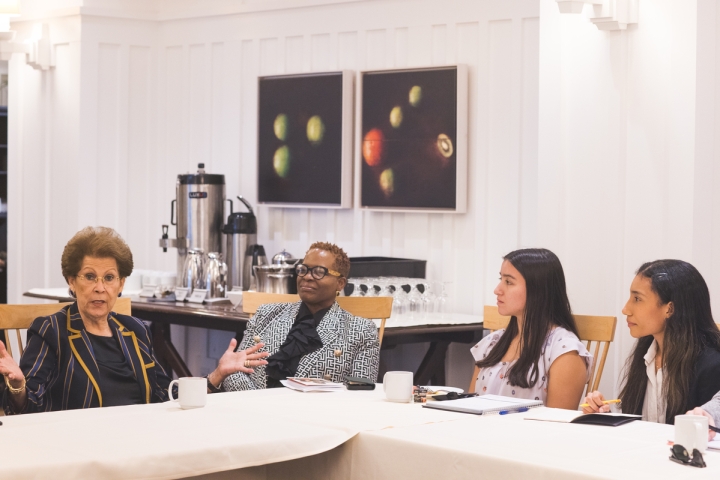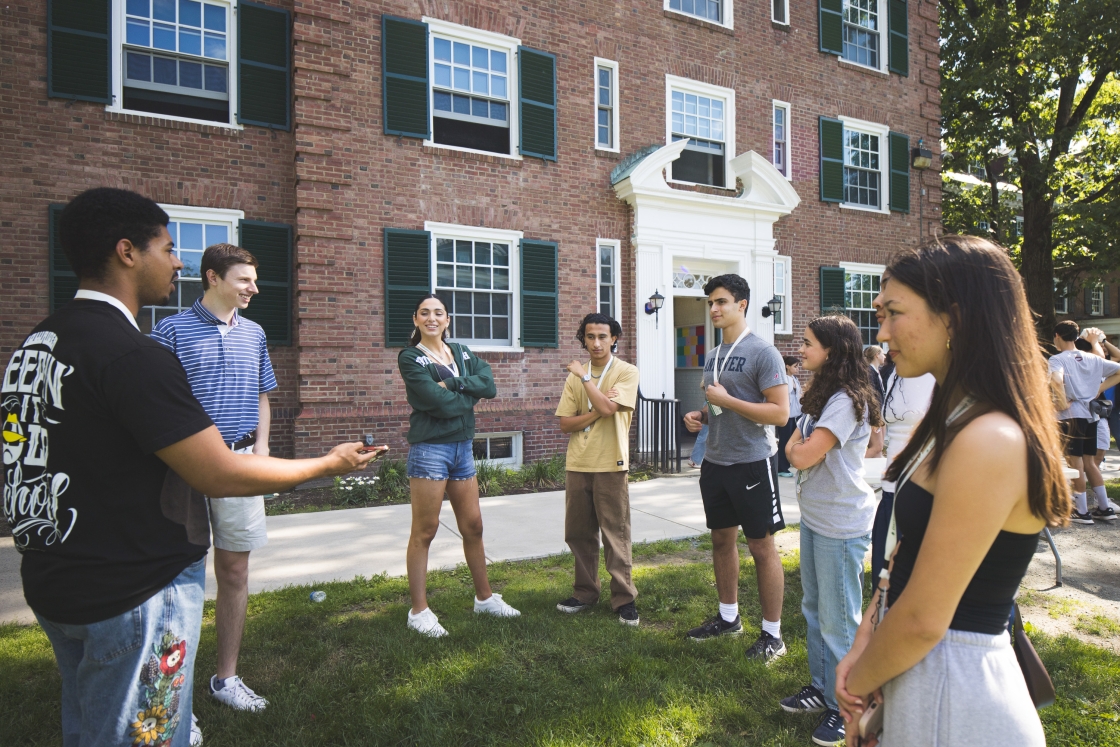Four former surgeons general met with undergraduate and graduate students across Dartmouth on Wednesday afternoon to discuss mental health, wellness, and higher education.
The hourlong conversation came on the eve of a panel discussion Thursday with President Sian Leah Beilock, Surgeon General Vivek Murthy, and his living predecessors on how to address the nation’s mental health crisis.
President Beilock greeted the group in the Birch Room at the Hanover Inn and said the meeting was just one example of efforts underway to advance mental health and wellness at Dartmouth.

By sharing “your voices at the table, you are getting to advocate for what is important for you, and we are here to support that,” she told the 13 students in the meeting.
Former surgeons general Richard Carmona, Joycelyn Elders, Kenneth Moritsugu, and Antonia Coello Novello fielded student questions during the meeting, which was organized by Lisa McBride, associate dean for diversity, equity, inclusion, and belonging at Geisel School of Medicine.
The surgeons general said they were concerned about young people’s mental health, citing depression and suicide rates among college-age students, and said more needed to be done to destigmatize mental health conditions.
They discussed the need to identify the root causes of stress, anxiety, and depression, and urged community members to reach out to students exhibiting signs of distress, such as using substances, missing classes, or removing themselves from other day-to-day activities.
A medical provider is not going to know that someone is isolating, Carmona said. “If you see something, say something,” he told the students.
The group also explored gaps in mental health resources and possible solutions.
Setting a cultural tone that supports mental health is important, but “I think it comes down to not (having) enough providers,” which leads to burnout, said Derek Colaizzo, Geisel ’25.
Several of the surgeons general noted that different mental health conditions require various levels of care, which can come from a range of health professionals, including counselors, pediatricians, psychologists, and psychiatrists. They also described related tools, such as apps offered by some universities that allow students to reach out to their professors in real time.

Recent steps Dartmouth has taken include updating the policy for time away for medical reasons, contracting with the mental health provider Uwill to provide teletherapy services, and increasing the clinical staff in the counseling center by 50% over the past three years.
Throughout the discussion, one message was clear.
“Don’t be afraid to ask when you need help,” Novello said.
McBride said the students’ questions would be shared with CNN Chief Medical Correspondent Sanjay Gupta, who will moderate Thursday’s panel discussion, so their classmates can hear what was discussed.
One of the first major events of Beilock’s tenure, Thursday’s conversation will bring a national focus to student mental health and wellness. Supporting and improving mental health within the Dartmouth community is among five priorities she highlighted in her inaugural address.
Carmona, Elders, Moritsugu, Novello, and fellow former surgeons general Jerome Adams, Regina Benjamin, and David Satcher will participate with Murthy and Beilock in the panel discussion. The event, to be held at 1 p.m. at Leede Arena, can be livestreamed.


